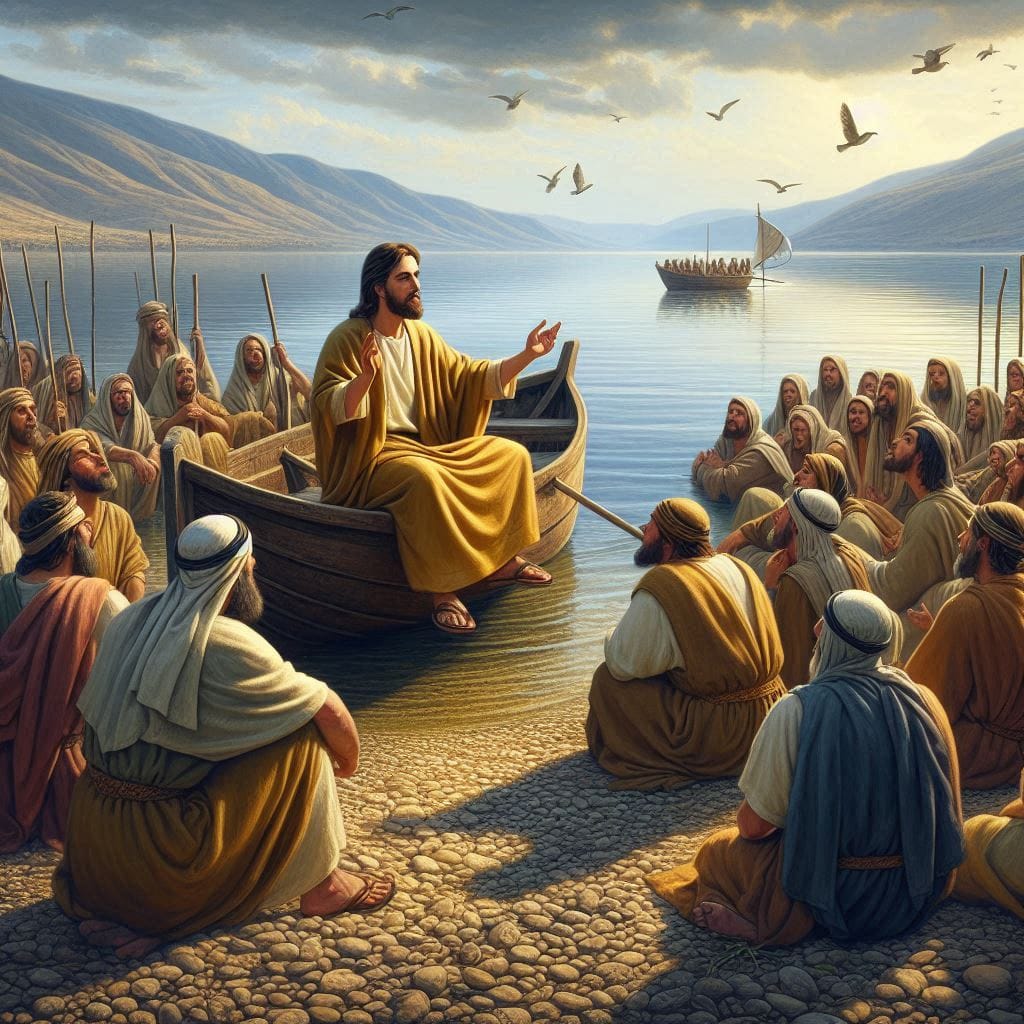The Kingdom of GOD (Heaven) in Relation to the Kindom of Israel
 The Kingdom of Israel was an earthly kingdom. It came about in this way. God promised to Abraham that his descendants would multiply in number, possess the land of Canaan and enjoy God’s favor (Genesis 17:3-8). This was accomplished when Moses led the people from Egypt through the wilderness to the promised land. Along the way God covenanted with the people and gave them his covenant laws (Exodus 20:1-17). God, YAHWEH, was their king and they had no other king to rule them (1 Samuel 8:6-7). Under God’s supervision, Moses, with the help of judges that he appointed, settled disputes and administered civil justice among the
The Kingdom of Israel was an earthly kingdom. It came about in this way. God promised to Abraham that his descendants would multiply in number, possess the land of Canaan and enjoy God’s favor (Genesis 17:3-8). This was accomplished when Moses led the people from Egypt through the wilderness to the promised land. Along the way God covenanted with the people and gave them his covenant laws (Exodus 20:1-17). God, YAHWEH, was their king and they had no other king to rule them (1 Samuel 8:6-7). Under God’s supervision, Moses, with the help of judges that he appointed, settled disputes and administered civil justice among the
people and in doing so developed Mosaic Law (Exodus 18:17-26). Moses was not allowed to enter the land of Canaan but the people entered and eventually possessed the land under the leadership of Joshua.
 After possessing the land of Canaan the Israelites settled into a more agrarian lifestyle and increased in numbers. God spoke to the people through prophets such as Samuel but the people were rebellious. Many times they forgot God’s commandments and adopted the culture of the peoples of Canaan. Many times they were oppressed and ruled by their neighbors. When they cried out to God for deliverance he sent, time and again, judges to lead them in battle. Finally the people insisted on having an earthly King to rule them so that they could be united as a nation capable of defending themselves and dominating the neighboring kingdoms (1 Samuel 8:19-20). God gave them Saul and after Saul he gave them David as king followed by Solomon.
After possessing the land of Canaan the Israelites settled into a more agrarian lifestyle and increased in numbers. God spoke to the people through prophets such as Samuel but the people were rebellious. Many times they forgot God’s commandments and adopted the culture of the peoples of Canaan. Many times they were oppressed and ruled by their neighbors. When they cried out to God for deliverance he sent, time and again, judges to lead them in battle. Finally the people insisted on having an earthly King to rule them so that they could be united as a nation capable of defending themselves and dominating the neighboring kingdoms (1 Samuel 8:19-20). God gave them Saul and after Saul he gave them David as king followed by Solomon.
Thus was established the earthly Kingdom of Israel. It was a kingdom of the descendants of Abraham through his grandson Jacob, also known as Israel.
Moses had delivered the commandments of God at Sinai and developed the Mosaic Law to apply God’s commandments to the everyday life of the Israelites (Exodus 18:20). About 1200 years after Moses Jesus came into the world teaching about the Kingdom of Heaven, sometimes called the Kingdom of God. It was to be a kingdom founded on the Commandments of God and many of the people believed that God had sent Jesus to restore the Kingdom of Israel to the glory and prominence it had once enjoyed under King David. However, King Herod and his family viewed Jesus as a threat to their reign over Israel. The chief priests, the family of Annas, also viewed Jesus as a threat to their position of authority over the temple and over the people. The leaders of several religious sects or denominations, such as the Pharisees, Herodians, Sadducees and the teachers of the Law viewed Jesus as a threat because his teachings challenged their traditions about the Law and exposed their hypocrisy as the religious leaders of Israel (Mathew Ch 23). The Pharisees and the teachers of the Law represented the very best of the keepers of Mosaic Law and yet Jesus said that their righteousness was not adequate to enter into the Kingdom of Heaven (Mathew 5:20). The righteousness that is produced by applying the teachings of Jesus exceeds the righteousness that is produced by applying the teachings of the Pharisees (Matthew 7:24-27). Jesus taught the people how to apply the commandments of God to their lives on a spiritual level (Mathew 5:1 through 7:27) .
Jesus did not come to do away with the Law but to fulfill it (Mathew 5:17-18). He had no intention of dismantling the Kingdom of the Jews, that is, the Kingdom of Israel but to bring those that he called “the lost sheep of Israel” into a right relationship with God. He referred to God as his Father and to himself as the one who came down from Heaven (John 6:36-42). He embodied the very essence of God (John 1:1-14, John 14:9-11). The teachings of Jesus were new (Mark 1:1-28) and could not be contained by the teachings of the Pharisees and teachers of the Law. Jesus said, “No one sews a patch of unshrunk cloth on an old garment, for the patch will pull away from the garment, making the tear worse. 17 Neither do people pour new wine into old wineskins. If they do, the skins will burst; the wine will run out and the wineskins will be ruined. No, they pour new wine into new wineskins, and both are preserved.”(Mathew 9:16-17). His authority and knowledge were obvious (Mathew 7:28-29) but continuously questioned and challenged by the religious leaders (Mathew 16:1,
Mathew 21:23). Jesus came to tell about the Kingdom of Heaven and gave his teachings, his law, to apply God’s commandments to the lives of those who choose to enter into the Kingdom of Heaven (Mathew 7:24-27). He often explained his teachings by contrasting and comparing his teachings with the requirements of the Law of Moses (e.g. Mathew 5:38-39). He said to them, “Therefore every teacher of the law who has become a disciple in the kingdom of heaven is like the owner of a house who brings out of his storeroom new treasures as well as old.” (Mat 13:52 ) So the Kingdom of Heaven can co-exist with the Kingdom of Israel and it’s religion, Judaism. But the
Kingdom of Heaven is bigger than Judaism and is described and administered by the teachings of Jesus.
One can be a Jew, living by the commandments of God by correctly keeping Mosaic Law and, at the same time, be a citizen of the Kingdom of Heaven by correctly keeping the teachings of Jesus. However, the Kingdom of Heaven is big enough to include people of other nations also. These are known as “gentiles” or “non-Jews”. A gentile may also become a citizen of the Kingdom of Heaven by keeping and applying the teachings of Jesus. (Mathew 28:18-20) Then Jesus came to them and said, “All authority in heaven and on earth has been given to me. Therefore go and make disciples of all nations, baptizing them in the name of the Father and of the Son and of the Holy Spirit, and teaching them to obey everything I have commanded you. And surely I am with you always, to the very end of the
age.”




